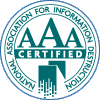 Competitors CompetitorsUnshredded documents and other media can be used by competitors to gain trade secrets, gather financial information and find your customers. |
 Criminals CriminalsPersonal information put out for trash or recycling has a high value to those looking to commit crimes such as credit card fraud, bank fraud and identity theft. |
 Investigators InvestigatorsCompany information that is not securely destroyed on-site can land in the hands of private investigators, researchers, and journalists. |
You Should Shred Your Documents – Never Carelessly Discard Anything!
The failure of your business to shred your documents puts your business at risk—legally, financially, and reputationally. Whether it’s customer data, employee records, or internal reports, improper disposal of confidential material can lead to lawsuits, identity theft, compliance violations, and loss of trust.
Protecting that information isn’t just good business—it’s a legal obligation.
Document security isn’t just good business, it’s the law. For example, recent federal and state legislation holds businesses to high standards of confidentiality, and failure to comply could result in fines and/or litigation.
Federal and state regulations now require businesses to destroy sensitive documents securely. Shredding is one of the most effective ways to meet these legal requirements and protect your organization from penalties. Learn more about why businesses should shred and purge business documents.
HIPAA: Health data must be protected
The Health Insurance Portability & Accountability Act (HIPAA) is a federal law to prevent abuses of personal health information, including unauthorized access.
Institutions that must comply with HIPAA are called covered entities. Covered entities include any and all organizations or individuals who retain or collect health related information. There are also small covered entities such as doctors, dentists, chiropractors, psychiatrists, psychologists, counselors, urgent care centers, billing centers. physical therapists and collection agencies. According to HIPAA, every covered entity regardless of size, must have documented policies defining reasonable measures they have instituted to prevent unauthorized access. Destroying all discarded patient information is a very important requirement for HIPAA.
HIPAA applies to all businesses and professionals who collect or store health-related information—regardless of size. Covered Entities include medical offices, therapists, clinics, billing services, and more. The law requires these organizations to document and implement reasonable safeguards, including the secure destruction of all discarded patient records. Shredding is a direct and compliant solution.
FACTA: Stop identity theft before it starts
The Fair and Accurate Credit Transactions Act (FACTA) was signed into law in 2003. FACTA is a federal law designed to reduce the risk of consumer fraud and identity theft created by improper disposal of consumer information. The FACTA disposal rule applies to virtually every person and business in the United States. It requires the destruction of all consumer information before it is discarded. Potential severe penalties await violators.
FACTA requires nearly all U.S. businesses to destroy consumer information before disposal. Whether you’re a small company or a national brand, you must handle personal data securely, or face serious penalties.
Shredding is the easiest way to stay compliant.
GLBA: Financial data requires secure disposal
The Gramm-Leach-Bliley Act (GLB) requires companies engaged in financial activities to provide secure handling of client records and information. These companies include banks, mortgage and finance companies, brokers and underwriters, securities and investment firms, and non-bank financial service firms.
The GLBA mandates data security for banks, lenders, mortgage companies, investment firms, and other financial institutions. Additionally, it includes provisions for how to dispose of client records.
Shredding is one of the simplest ways to stay on the right side of the law.
State Laws: Increasingly Strict
State and local legislation is being proposed and passed throughout the nation in response to public alarm over privacy protection and identity theft. An increasing number of laws require organizations that handle sensitive data to protect information when it is discarded. For example, many of these new laws specify shredding as the most reliable method of destruction.
Across the country, states and municipalities are passing stricter data privacy laws. Many now require companies to shred documents when disposing of sensitive information. If your company operates in multiple states, staying compliant means following the most rigorous standard.
Trash is public property
Without the proper safeguards, information ends up in the dumpster where it is readily, and legally, available to anybody. Going through your trash isn’t illegal. For example, the Supreme Court ruled in 1988 that once trash is left for pickup, it is public domain, with no expectation of privacy or ownership.
Armed with bits of information from company trash, hackers invade networks, competitors gain an edge, and criminals steal the identity from millions of unsuspecting businesses and individuals. For example, any business that inappropriately discards private and proprietary data without secure destruction exposes itself to these risks, as well as the risk of criminal and civil prosecution and fines.
Think your trash is safe? It’s not. The U.S. Supreme Court ruled in 1988 that once you put trash out for pickup, it becomes public property. That means identity thieves, hackers, or even competitors can legally dig through your discarded documents.
Shredding is your first—and best—line of defense.
Partner with compliance experts
Reduce risk and costs with the experts in information destruction compliance. Secure Document Destruction of St. Louis can help you establish a secure, compliant, comprehensive, and cost-effective Information Destruction Policy for your business or organization.
SDD of St. Louis helps businesses like yours develop affordable, compliant shredding policies tailored to your industry. Whether you work in healthcare, finance, education, retail, or many other industries, we’ll help ensure your document disposal practices meet regulatory requirements.
Here a bonus on a topic of interest to all businesses: learn more about the threats to small businesses from artificial intelligence.
We recycle everything we shred
Secure Document Destruction believes in protecting the environment and is committed to recycling 100% of your shredded documents. Consequently, when you partner with SDD of St. Louis, your business becomes “greener” while protecting your document security needs.
We recycle 100% of the documents we shred—so when you protect sensitive information, you’re also protecting the planet.
Real environmental benefits
The benefits to the environment are measurable. According to the EPA, recycling one ton of paper saves:
- 17 trees
- 3.3 cubic yards of landfill space
- 360 gallons of water
- 100 gallons of gasoline
- 60 pounds of air pollutants
- 10,401 kilowatts of electricity
Choosing a shredding partner who recycles helps your business do its part—securely and sustainably.


